I am using Asp.Net signal for sending user specific notification. Everything working fine in debug mode using visual studio but the same breaks while deployed to Azure.
I am using redis cache.
Startup.cs
using Microsoft.AspNet.SignalR;
using Microsoft.Owin;
using Owin;
[assembly: OwinStartup(typeof(NotifSystem.Web.Startup))]
namespace NotifSystem.Web
{
public partial class Startup
{
public void Configuration(IAppBuilder app)
{
GlobalHost.DependencyResolver.UseStackExchangeRedis(new RedisScaleoutConfiguration("mySrver:6380,password=password,ssl=True", "YourServer"));
app.MapSignalR();
}
}
}
My Hub Class:
using Microsoft.AspNet.SignalR;
using NotificationHub.Models.Hubs;
using System;
using System.Collections.Concurrent;
using System.Collections.Generic;
using System.Linq;
using System.Threading.Tasks;
namespace NotificationHub.Hubs
{
public class NotificationHub : Hub
{
private static readonly ConcurrentDictionary<string, UserHubModels> Users =
new ConcurrentDictionary<string, UserHubModels>(StringComparer.InvariantCultureIgnoreCase);
//private NotifEntities context = new NotifEntities();
//Logged Use Call
public void GetNotification()
{
try
{
string loggedUser = Context.User.Identity.Name;
//Get TotalNotification
//string totalNotif = LoadNotifData(loggedUser);
//Send To
UserHubModels receiver;
if (Users.TryGetValue(loggedUser, out receiver))
{
var cid = receiver.ConnectionIds.FirstOrDefault();
var context = GlobalHost.ConnectionManager.GetHubContext<NotificationHub>();
context.Clients.Client(cid).broadcaastNotif();
}
}
catch (Exception ex)
{
ex.ToString();
}
}
//Specific User Call
public void SendNotification(string SentTo,string Notification)
{
try
{
//Get TotalNotification
//string totalNotif = LoadNotifData(SentTo);
//Send To
UserHubModels receiver;
if (Users.TryGetValue(SentTo, out receiver))
{
var cid = receiver.ConnectionIds.FirstOrDefault();
var context = GlobalHost.ConnectionManager.GetHubContext<NotificationHub>();
context.Clients.Client(cid).broadcaastNotif(Notification);
}
}
catch (Exception ex)
{
ex.ToString();
}
}
private string LoadNotifData(string userId)
{
return userId;
int total = 0;
//var query = (from t in context.Notifications
// where t.SentTo == userId
// select t)
// .ToList();
total = 6;
return total.ToString();
}
public override Task OnConnected()
{
string userName = Context.User.Identity.Name;
string connectionId = Context.ConnectionId;
var user = Users.GetOrAdd(userName, _ => new UserHubModels
{
UserName = userName,
ConnectionIds = new HashSet<string>()
});
lock (user.ConnectionIds)
{
user.ConnectionIds.Add(connectionId);
if (user.ConnectionIds.Count == 1)
{
Clients.Others.userConnected(userName);
}
}
return base.OnConnected();
}
public override Task OnDisconnected(bool stopCalled)
{
string userName = Context.User.Identity.Name;
string connectionId = Context.ConnectionId;
UserHubModels user;
Users.TryGetValue(userName, out user);
if (user != null)
{
lock (user.ConnectionIds)
{
user.ConnectionIds.RemoveWhere(cid => cid.Equals(connectionId));
if (!user.ConnectionIds.Any())
{
UserHubModels removedUser;
Users.TryRemove(userName, out removedUser);
Clients.Others.userDisconnected(userName);
}
}
}
return base.OnDisconnected(stopCalled);
}
}
}
Javascript Code:
var hub = $.connection.notificationHub;
hub.client.broadcaastNotif = function (notification) {
setTotalNotification(notification)
};
$.connection.hub.start()
.done(function () {
console.log("Connected!");
hub.server.getNotification();
})
.fail(function () {
console.log("Could not Connect!");
});
});
function setTotalNotification(notification) {
if (notification) {
GetUnreadNotificationCount();
$('#m_topbar_notification_icon .m-nav__link-icon').addClass('m-animate-shake');
$('#m_topbar_notification_icon .m-nav__link-badge').addClass('m-animate-blink');
}
else {
$('#m_topbar_notification_icon .m-nav__link-icon').removeClass('m-animate-shake');
$('#m_topbar_notification_icon .m-nav__link-badge').removeClass('m-animate-blink');
}
}
I have enabled Websocket for that particular App Service.
Cross user notification sending is not successful it only works if the logged in user sends notification to himself only.
Update:
I checked that while a logged in user is doing an activity so that the notification goes to that particular user then it works. Like if a user user1 sends a notification to user1 then there is no issue.
